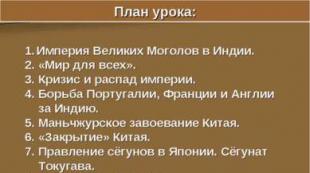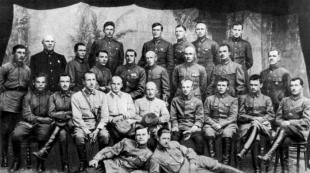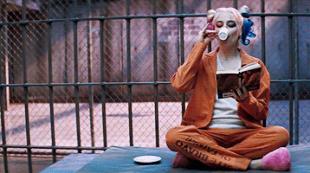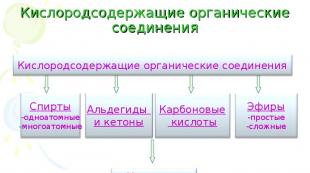Psychological training on the meaning of life. A series of training sessions with teenagers “life is worth living” lesson plan on the topic. Do you have an idol, why do you love him?
The meaning of life is the maximum meaning,
the maximum value of something
what are you aware of your involvement in?
M. Weller
My success is 99 failures and one success!
Saochina Honda
Have you learned to enjoy obstacles?
Eastern wisdom
TARGET:
- To guide young men and women to search for true goals and meanings.
- To help formulate the most pressing and painful problems of relationships with the past, present, future and analyze them.
- Dissociate your view of life's problems, change their perception.
- Expand the fields of behavioral variation in crisis and difficult situations.
- Increase self-confidence and personal growth of training participants.
- To update targeted awareness of the personal resources available to each participant that contribute to the formation of highly effective behavior in life’s difficulties.
- Focus participants' attention on the importance of difficulties for increasing personal competence and achieving life success, on the opportunity to use a crisis as a chance to reach a new level of personal development, quality of relationships or life in general.
PLAN:
- Conversation.
- Exercise “My meanings”.
- “Drop on glass” technique.
- Exercise “Overcoming”.
- Reflection.
- Farewell Ritual.
CONVERSATION
Does life even have meaning? And if so, which one? What exactly? Or is life completely meaningless? These questions torment every person deep down. A person can completely forget about it for a while, even for a long time, and plunge headlong into everyday problems, worries, and interests. But this question cannot be completely dismissed. And even the most spiritually stupid, fat, sleeping person returns to this issue, because death is approaching. Aging sets in, illnesses, etc. Dying is scary. As a rule, those who have not revealed the meaning of life are afraid. Fear of death is actually a transformed fear of life. It happens that life goes by very quickly, days follow one another, like in a kaleidoscope, and one day suddenly a person faces the fact: life has passed, and there was no life, because there was no meaning in it. Many philosophical and psychological movements consider the problem of meaning from different positions. Viktor Emil Frankl, an Austrian psychiatrist and psychologist, finds the meaning of life in life itself, in every moment of it. He created logotherapy, according to which the driving force of human behavior is the desire to find and realize meanings existing in the external world: the meaning of study, the meaning of work, the meaning of love, hate, suffering, death, existence, etc.
Life cannot be devoid of meaning, under any circumstances. The meaning of life can always be found. Life is difficult to describe, but you can feel it and cherish it. It is also difficult to evaluate. Life unfolds and all of it is in this moment, “here and now!” - no more and no less. A wise person lives every day as if it were his last; a normal person lives in the future.
EXERCISE “MY MEANINGS”
(Work in notebooks).
Instructions. Please write down the following questions:
1. What do I give to life? (Creativity, work, study...)
2. What do I take from life? (Values, feelings, experience...)
3. My position in relation to fate. How I feel about the way I live.
4. What am I striving for?
5. What do I give to labor?
6. What do I take from work?
7. How do I feel about work?
Please write down the answers to these questions. You will get a small treatise on the search for meaning. Discussion. Impression.
3. METHOD “DROP ON GLASS”
Stage I. Immersion in a relaxation state (relaxation of the body according to the traditional scheme), or a simple brief relaxation setting. For example:
Sit in a comfortable position and close your eyes. Breathe in and out calmly. Your breath is free. Imagine…
II Main text.
... Imagine that you are standing at the window. The rain drums and its drops flow down the glass... Some quickly slide down, others, as if trying to catch on and stop the fall, float for some time along the smooth transparent surface, leaving thin paths behind them and eventually also get lost outside the perimeter of the window.
Gray clouds are floating across the sky, behind a continuous veil of which - you know this for sure - is a clear blue sky and a bright warm sun. Just as even behind the most difficult work week, there is an island of weekends that can be made bright and warm even in the cold winter, just as in the flow of life’s problems there are always events filled with special warmth, light, when every moment is filled with a feeling of happiness, and the burden of everyday worries becomes completely weightless...
And on such a gray day, sometimes in a special way you want to suddenly feel this weightlessness and find yourself there, behind the veil of gray clouds and clouds. And at that moment, you discover that you can fly. You discover that invisible wings are already carrying you into the heights... the whistle of the wind and the elasticity of the air, coolness and freshness... The feeling of free flight, independence and strength, overcoming the flow of droplets and droplets. Somewhere far away, below there are people, trees, houses... and it seems... just a little more and here it is, clear sky and warm rays of the sun, here it is - a dream... And suddenly you notice that you are merging with the streams of droplets rushing down, turning into one of them. An unexpected turn, or just fatigue... and you are carried back - down. Trying to hold on, you try to somehow influence what is happening, and... you manage to cling to someone’s window. There is a light on behind the glass, and someone is standing at the window. Maybe you want to scream, call for help, you want attention and support, and there is hope that this person can help. He sees a silent drop rolling down the glass... And you are again in free flight downwards.
... Finding yourself on the ground, among wet and sticky lumps of soil, cold pebbles and woody debris, and looking around, you notice everywhere a lot of seeds and seeds of different colors and shapes. Droplets of water roll up to some of them, and they come to life, sprout sprouts and fly upward. And soon beautiful flowers or mighty trees will appear up there. And you too can grow your flower of life, the flower of your dreams. You just need to determine what kind of flower this flower will be and choose the appropriate seed. And it doesn’t matter what color or size it will be, the main thing is that this choice is made with the heart, made by you and for yourself.
... And at this moment, when you approach your seed, connect with it, it does not matter whether you found this seed next to you, or in yourself... and it turned out that it has always been a part of you... And, feeling an unprecedented surge of strength, inspiration... and lightness, you rush upward... renewed, fresh, strong sprout of your creation, or creation and rebirth of yourself. Through the thickness of the barriers, making your way to the sun, you notice that it is already light around, the sun's rays are playing in the pearls of water on the leaves. And let there be no creation on Earth exactly like your flower, just as there is no person exactly the same as you. As the only and unique value of this world... And it doesn’t matter what you managed to grow - a small unique forget-me-not, or a huge rose bush... after all, this is your creation, it can be a contact with a dream.
Feeling how your flower opens its branches and buds, you feel new strength, new opportunities, and, most importantly, you know that surprises, falls and mistakes can give enormous strength, experience and inspiration on the path to your dream. And retaining these feelings of strength, freshness, new possibilities and new knowledge, you rise above your creation higher and higher and... are again transported to the room with the window. Droplets are rolling down the glass again. Everyone has their own path and you know how to go through it, you understand what they have yet to understand. And maybe you will want to say something to the droplets sliding down, to wish something, to remind you of something. Do it... And I don't know what this adventure meant for you. What was it - a journey into your inner world, where there is also different weather, where there are droplets that give strength and seeds from which you can grow new abilities, a new yourself. Or is it just a story,... a film about one of the options for the creation of fate.
And now, having remembered everything that you may have learned, understood, everything that surprised you or seemed important, come back here to our office.
III Questions for discussion.
Impressions, feelings, experiences? What happened to you, what stages were experienced especially vividly? Associations with what life strategies in situations of error or unexpected obstacles arise in connection with the experience gained in the exercise?
For each of you, the image of a droplet has evoked certain life associations; each of you has the experience of experiencing yourself as a droplet in real life and has the experience of reviving yourself, self-support in certain life events. Everyone has their own seeds that managed to germinate and which now serve as a reliable point of support - your experience, your achievements and victories, the discovery of some facets of your “I”. All this experience and personal baggage of life knowledge and skills are priceless and worth talking about it separately. Let's do it this way.
Take a sheet of paper and markers. Below we will draw a drop, maybe you will have several of them. Our drop now will symbolize those life situations in which you experienced something similar to what you experienced today. From the droplet we will make sprouts, and our droplet already takes on the image of a grain (the coach draws a possible example on the board), the image of rebirth and life. Let's draw leaves and flowers on the sprouts. Let each flower symbolize the experience, the life gains that you received thanks to these difficulties, problems, crises. You can make explanatory notes (10-15 minutes).
4. EXERCISE “OVERCOMING”
Memo on resolving problem and crisis situations. Participants are offered an approximate sample of it, which they can make changes in accordance with their experience and the characteristics of the problems being analyzed.
Memo for resolving problem situations.
The operation of making a decision about a problem consists of 5 components.
1. Orientation to the problem. It's important to remember here. Everyone has problems, if you have a problem, you are a normal person! Many people have similar problems, you are not alone! Don’t avoid facing problems, try to solve them – it’s in your power! The first idea is not always the best, stop and think before you take action! If you wish, you can change yourself and solve any problems. Listen to your feelings, they will be the first to give a signal that something is going wrong! The sooner you find a problem, the faster you can solve it!
2. Definition and formulation of the problem. In order to better understand the essence of the problem, describe it according to the following characteristics: “who, what, why, where and how.” Stop, think and describe the problem and your goals. Describe all available facts clearly and specifically! Separate accessible from hidden information and facts from assumptions! Explore the factors and circumstances that create the problematic situation (obstacles and conflicts). Precisely define your goals, dividing them into rational and irrational. A list of “clues” can be used to clarify confusing areas of the problem:
- Known
- Thoughts
- Opinions
- Ratings
- Feelings
- Reactions
- Solutions
- Unsolvable
- Attempts
- Failures
- Consequences
- Errors
- Agreements
- Interference
- Resources
- Ignored
- Misunderstood
- Lacks
- Suppressed
- Holds back
- Forgotten
- Objections
- Achieved
- Healthy
- Constantly
- Changes
- Hiding
- Positively
- Negative
- curious
- Mysteriously
- Interesting
- Is hidden
- Imposed
- Left unanswered
- Does not exist
- Preferably
- Internal prohibitions
- Obsessive
- Anxiety
- You can learn
Keys are used in the form of questions. For example: What resources are available to achieve...? What attempts have been made? What obstacles did you encounter? Is anyone making any estimates? And you? What's troubling about this situation? What obstacles exist? What mistakes could or could be made? etc.
3. Generating alternatives. Without criticizing or evaluating, put forward as many options for solving the problem as possible - they must be specific and logical! Try to combine and improve ideas.
4. Decision making. Assessing possible solutions. Criteria:
- What is the likelihood that this option will help achieve the goal?
- What is the likelihood that I will be able to use this solution in the best way?
Impact assessment. Personal consequences - time, effort, emotional costs or gains, compliance with moral and ethical values, physical condition, etc. Social consequences: effect in family, friends, etc. Short term and long term consequences - how will this decision affect me now? In future?
5. Selecting the most effective alternatives and converting them into an optimal solution.
If there is a discrepancy between the goal and the observed consequence, try to determine whether the difficulty is in the process of solving problems or implementing solutions. In the first case, you can go through the entire solution algorithm again, in the second, you should think about how to improve the way to implement the solution.
Remember! The presence of problems indicates that you are human, and the ability to solve them indicates that you are a happy person.
A crisis can become an opportunity!
5. REFLECTION
MY REFLECTIONS. Fill in.
Target: to promote high school students’ understanding of various philosophical approaches to the meaning and purpose of human existence, awareness of the meaning of their own lives and their calling in life.
Approximate lesson content
Reflection on the emotional state at the beginning of the lesson.
Individual work of participants with the task “Alternative choice”:
Different people see life differently, but each of us must find meaning in our own lives.
So what do people think about the meaning of life?
Life is the path to victory. « Veni, vidi, vici“I came, I saw, I conquered” Yu Caesar.
Life is a mission . “The search for meaning is the search for a goal, a task, a common cause.” N.F. Fedorov.
Life is a game. “The whole world is a stage, and the people in it are actors”. V. Shakespeare.
Life is a search for God. “You created us, and our hearts know no peace until they come to Your abode.” Augustine.
Life is service to others. “If there is meaning and purpose in life, then this meaning and purpose is not at all in our happiness, but in something more reasonable and greater. Do good!” A.P. Chekhov.
Life love . “Not loving anyone means not living" Francois Fenelon.
Life is happiness. “Life is a gift, life is happiness, every minute of which could be a century of happiness.” F. Dostoevsky.
Life is creativity. " Creativity is the natural meaning of life.” N. Roerich.
Life is a labyrinth. “Life is an uneven, irregular and varied movement.” M. Montaigne.
Life is an eternal renewal. “Human life should always be like this river flowing in front of me: always the same bed and in it fresh water every moment.” G. Thoreau.
Life is constant change. “Know delight - know suffering. Since I change, I live... It is decent for a statue to freeze, not for a living creature.” I. Severyanin.
Life is work. “Work is the only thing available to man on earth and the only happiness worthy of him.” K. Ushinsky.
Life is a struggle. “Struggle is the condition of life: life dies when the struggle ends.” V. Belinsky.
Life is about following a sense of duty. “The highest pleasure in life is the feeling of accomplishment.” W. Gaslitt.
Life is suffering. “I was born, I lived in tears, I die in tears.” A.P. Sumarokov.
Life is the path to death. “The first step of a baby is a step towards his death.” K. Prutkov.
Choose 3 statements with which you primarily agree, and put the numbers 1,2,3 next to them according to the degree of their importance for you and a plus sign. Place the same numbers with a minus sign next to those statements with which you disagree.
3. Each participant voices his list and comments on the choice made, and answers the questions asked.
4. Discussion of different points of view.
5. Performance by creative groups with messages prepared in advance: presentation of various philosophical concepts of the meaning of life, answers to questions.
6. Discussion .
Issues for discussion:
Why does the question of the meaning of life arise again and again before humanity? Is this a problem that concerns only philosophers or is it equally important to every person?
Which system of philosophical views is closer to you, and why?
Does every person find the meaning of his existence?
What motivates a person to search for meaning?
What can become the meaning of life for a modern person, your meaning?
The hero of the novel by M. Lermontov, Pechorin, suffered from a feeling of the meaninglessness of his life: “I run through my entire past in my memory and involuntarily ask myself: why did I live? For what purpose was I born? And it’s true that it existed, and it’s true that I had a high purpose, because I feel immense powers in my soul... But I didn’t guess this purpose...” What do you see as your purpose, your life task? Is it related to your future professional activity? How ready are you to implement it?
7. Summing up. Collective analysis.
5 exercises to help you find your purpose
http://www.way2self.in.ua/put-k-uspehu/5-uprazhnen...html#more-2040&hcq=sQ9fFkq
Do you know how to understand whether you are going your way? Quite simple. If you get up every morning filled with energy and creative ideas, you are on your way. If you hate the ringing of the alarm clock and get up in a bad mood, it’s time to change jobs. Here are some exercises to help you understand what you really need to do.
Exercise 1. Bring back children's interest
Do you know the difference between a genius and an ordinary person? A genius defends his right to do what he loves. This usually happens at a very early age.
Answer yourself the question, what did you like to do as a child? Even before your parents started pushing into you the attitude that “you can’t earn a living by drawing” or “dancing is not serious.” Write three things that really fascinated you as a child. This is a little hint where you should aim.
Exercise 2. Looking for patterns: 20 favorite activities
Now let's make a list of 20 of your favorite activities. Even if some of them seem banal to you (for example, eating delicious food) - write anyway. When the list is ready, take a close look at these activities. See the patterns? Maybe your list is dominated by things related to helping people? Or some kind of sports activities? Or things related to quiet, monotonous work?
Understand how this list can be divided into groups. It will help you understand what kind of life you would like to live.
Exercise 3. Your ideal environment
If no one believes in you, then it becomes even more difficult to believe in yourself. This is why the environment that produces winners almost always consists of winners. Unfortunately, the environment in which we are accustomed to growing up is not conducive to the creation of geniuses.
Imagine that the world has changed overnight to suit your needs. And in the morning it will be filled with the kind of people you want. What will these people be like? What qualities do they have? Maybe they are all creative, or, on the contrary, they are people who passed their compulsory examination with an A plus? Maybe they do everything quickly, or, conversely, would you like to slow down the world?
What have you learned about yourself and what do you need to be your full self?

Exercise 4. Five Lives
Now imagine: you will have five lives. And in each of them you can become who you want. How will you live these five lives?
This exercise, like all others, you can customize to suit you. If you manage it in three lives, take three. You need ten - don’t deny yourself anything. I chose five just because I like that number.
So, imagine that you devote one life to biology, the second to professional travel, the third to having a large family with a bunch of children, in the fourth you become a sculptor, and in the fifth you become an astronaut. Which one do you like better?
The most important thing to understand here is this: if you have to choose just one life, even the one you like best, you will still miss the rest. Because they are an integral part of you. It was drilled into our heads: “Make up your mind!” This is sad.
There are people in the world who are born for a single purpose, but this is a rare exception. Each of your lives contains something that you deeply love and need. And you can bring this into your life.
Exercise 5. My ideal day
Now we have a long walk through your imagination. Grab a pen and paper and let's go. So what do you see as your ideal day?
Live this day in the present tense and in all the details: where do you wake up, what kind of house is it, who is lying next to you, what do you eat for breakfast, what clothes do you wear, what are you doing, what kind of work are you doing, at home or in the office?
Don't limit your imagination. Describe the day you would live if you had absolute freedom, unlimited funds and all the strength and skills you ever dreamed of.
After the list has been compiled, divide all your fantasies into three groups:
1. Which of these do you need like air?
2. Which is not necessary, but I would still really like to have.
3. What you can do without.
Our life consists of life experiences, stories, roles, relationships, earnings, skills. We choose some of this ourselves. Some of what we call our choices are actually compromises. Something completely random. Some of this is necessary and very expensive. But all this is not you.
Many books by the famous psychotherapist V. Frankl are devoted to the concept of the meaning of life. We will not analyze his wonderful ideas now, but we will note that many people do not think about the meaning of life, however, they directly feel the meaningfulness of their existence. If a person experiences a feeling of meaninglessness, then only then he begins to talk about this topic, trying to logically substantiate his feeling of the meaninglessness of existence or find meaning in the same way. However, you can simply create an image of the meaning of life that would really suit you and then determine what it means to you and how you can actually achieve it. To acquire in the sense of directly feeling its presence in your life, moreover, in your body, since our experiences are always rooted in our body and nowhere else.
Instructions for the exercise. Sit in a comfortable position. Imagine that the missing meaning in life is so far away that you feel isolated from it, and so close that you can sense it quite clearly (that is, see it, or hear it, or simply feel its presence). What does he look like? The first thing that comes to your mind will be the correct answer. Study the image that has arisen, talk to it. It is clear that the missing meaning of life should be presented as something extremely beautiful and energetically strong. The meaning of life really gives our lives a lot of energy, peace and confidence. If you are sure that there is no meaning in life, then this means. That you actually know what you are missing, but you deny its existence. Therefore, this excuse is not suitable; you can still imagine something that you think does not exist, but in principle is desirable for you.
What barriers exist between you and your meaning in life? What do they look like, what do they tell you, how do they justify the lack of contact between you and the meaning of life? Find counterarguments and other ways to overcome obstacles. If this does not work, then allow the meaning itself to break down one barrier after another, come closer to you and enter your body. Feel how the meaning of life has entered you and connected with you. How has your condition changed? Do you feel calmer, more confident, more whole, stronger? Let this feeling take hold and spread throughout your body. Exercise time is 5-10 minutes.
Group discussion of the results is very important, so that the therapist can conduct it quite competently; he needs to have a good knowledge of the theory of logotherapy by W. Frankl.
Example 1. After performing a similar exercise in a group, one of the students felt that she had connected with the meaning of life, which seemed to her to be a beautiful solar energy ball that fit in her body somewhere in the shoulder area. She felt very good, it was clear that she straightened up and somehow brightened her face. However, she said she felt a nagging need to do something right now. She felt some kind of responsibility and, despite the abundance of energy that she received, it was unpleasant for her. She said she preferred the previous state, although it was less energetic and less meaningful.
Even though I tried to help her maintain her new achievements, I had to agree with her reluctance to accept the meaning of life. Once she let go of her meaning in life, her shoulders sagged again and her face lost its “glow,” but she said it made her feel better.
This case confirms the opinion of V. Frankl that finding the meaning of life imposes on a person the responsibility for following this meaning. What can burden a person, although it gives her a lot of strength and brings happiness. Therefore, many people prefer to protect themselves from their own meaning in life and think that it should be somewhere far out of reach. It turns out that people who complain about the lack of meaning in life are actually avoiding it.
Example 2. I conducted therapy sessions with this student several times in a master class. Their results were successful, however, despite the successes, she kept repeating that she still did not see the meaning of life, and without this no success had any value. I didn’t know how to help her, there was no successful “clue.” However, in one of the last lessons, I invited her to imagine her meaning of life at some distance from herself. She said that he was not there anyway. Then I said that after all, she knows what the meaning is, she would like to have it, so she can imagine it. She agreed. After which I suggested that she tell the meaning that she would no longer drive him out of her life. My proposal was based on the conviction that had matured in me that she herself was abandoning the meaning of life, which in fact is always present in our lives, even if we are not aware of it. She was surprised by this proposal, but did it... And began to laugh! She was simply happy and said that she now felt her life was filled with meaning. She really felt good, her eyes were shining. She asked reproachfully: “Why, Nikolai Dmitrievich, didn’t you tell me such a simple, easy phrase before?!” “Sorry,” I replied, “I just realized now...”
5.6.2 Exercise 2 “Stopping the Eternal Struggle”
An Indian parable is told to the group members for clarification.
One man, like a thousand thousand others, dreamed of getting rich and satisfying all his desires. He understood that he would not be able to earn that much, but he heard that somewhere in the forest there lived a sage who knew a great mantra (spell). If you pronounce this mantra, a great genie will appear who will carry out any instructions.
He searched for this particular sage for a long time, finally found him, and, falling at his feet, begged him to reveal the great mantra to him. The sage persuaded him to abandon his crazy idea. “If you don’t find work for the genie, he will kill you,” the sage warned. But the man just laughed: “I have so many desires that I will simply overwhelm him with work, he will have no time to rest!” - he said. He asked so much that, in the end, the sage could not stand it and revealed the secret to him.
Not far away, the man uttered a mantra, and a genie, tall as tall as heaven, appeared. Everything that the man asked of him appeared immediately: palaces, gold and precious stones, parks and bridges, dancers and warriors, elephants loaded with various riches... Very soon the man could not think of anything else to ask for, and the genie roared: "Give me a job or I'll kill you!" In desperation, the man rushed to the sage, inventing something for the genie as he went, and the genie chased after him.
Again, falling at the feet of the sage, the man screamed: “Oooh, I realized what a fool I was! Save me, I repent so much!” “Okay, since you repent, I’ll help you,” he answered, “do you see that dog with a curled (there’s no other way to say it - N.L.) tail? Drag her here and tell the genie to rip out her tail.”
Gene was completely exhausted with this task, as soon as he squished the dog’s tail, it squirmed again, he squished again, and the tail squirmed again, he squished - the tail squirmed... He finally began to sweat and gave up. “I have never encountered anything like this. Let me go and I won’t touch you,” he said.
The genie was released in peace, and the man again fell to his knees before the sage. “Forgive me, I was a complete idiot, now I understand everything and want to become your student! Teach me your first lesson! - he screamed. “Okay,” said the sage, “this is my first lesson: this whole world is like a dog’s curled tail. All the people are trying to squiggle it, but it squiggles again, they squiggle it, and it squiggles again, they squiggle it, and it squiggles... Because its original property is to be squiggled..."
Even without performing any visible actions, we often psychologically struggle with some phenomena or people within ourselves. Or we endlessly fight with ourselves. Or we want to remake this world in accordance with our desires and ideas. For example, we always argue with our parents or husband (wife), we spend a lot of energy on this struggle, but this struggle does not bring any success, on the contrary, those phenomena with which we struggle intensely only grow and become stronger, as if they are feeding the energy we expended. But we, on the contrary, are becoming weaker and wither, and instead of living a productive life, we continue an endless and useless war within ourselves. We spent a lot of energy fighting in the past, we spend a lot fighting for a future that never comes. Our life is spent in depression, and our strength is fading.
In this exercise, it is proposed to regain the energy that was spent fighting this or that phenomenon. You can act in two ways: either try to regain everything at once, without going into detail about the problems that you spent your energy fighting, or you can act by gradually highlighting in turn one or the other phenomenon with which you struggled or are struggling , and returning to yourself the energy spent or being spent right now. It is much better for this energy to return to you than to be wasted. You will feel stronger than the phenomena you struggled with.
Instructions. So, focus on the thought of returning all the energy you expended on this or that struggle. Imagine something that you are struggling with so intensely or have struggled with without any success. If this is really something or someone dangerous to you, then do not stop fighting, but think about more effective self-defense.
If you understand that this struggle is fruitless and only leads to your exhaustion, then call on all the wasted energy back and accept it as your energy potential. You can invite all the energy from the past that was expended earlier, and from the future where it was directed by you. The main thing is to give up the futile and unproductive struggle to live well right now. Execution time 5-10 minutes.
Group discussion of the results reveals many unresolved problems and provokes philosophical discussion.
Lesson – training “The meaning of life”
Target: help a teenager look into himself, realize himself as a Personality, realize his goals and meaning in life.
Tasks: develop in adolescents the ability to self-reflect and promote awareness of their life goals; help teenagers form an active life position; develop goal setting and desire to realize personal potential.
Lesson notes.
Welcome Ritual
Participants stand in a circle and place their hands on each other's shoulders. They look at each other friendly and say: “Hello!”
Now let's greet each other in another entertaining way.
Greeting exercise “Come on, everyone together” »
One participant becomes the driver. The rest choose a few lines from a well-known poem or song and distribute the words among themselves. Each participant should get one word. To simplify the game, words can be distributed in a circle- everyone says one word from the song in order( poems); if someone ran out of words, the line is repeated again.
After this, the driver enters the room. At the coach’s command, everyone pronounces the words they have been given in unison., and the water participant must guess, what kind of song or poem did they wish for?. If he fails to do it the first time, the coach invites everyone to repeat the words again and gives the command again.
An example of a line from the song “It’s great that we are all gathered here today”
“Follow the sun, even though this path is unknown. Go my friend
always follow the path of goodness"
Psychologist. During the classes we will perform various interesting tasks and exercises. But in order for the classes to be successful, we need to discuss the rules that must be followed throughout all meetings.(Students propose, the teacher writes on whatman paper, which will be a mandatory attribute in each lesson).
Introduction to group rules
Psychologist: The next step of our meeting, according to the rules of good manners, will be acquaintance.
Exercise "Snowball"
Each person in turn says his name and his positive quality starting with the first letter of his name, the next participant repeats the name and quality of the previous participant and calls his name and quality, etc., until the whole group introduces itself.
Game “Piggy Bank of Good News” (ritual)
Each participant talks about what good happened in his life during the week.
Leading addresses the group: “We do a lot in our lives automatically: we get up in the morning, eat, study or work, watch TV, go to bed. Life becomes familiar and monotonous. Today I invite you to go on a journey called “life”, to realize your life goals, what the meaning of life is for each of you, to gain new experiences, new views on life in general, to see something unexpected and very valuable in the surrounding reality .
Take with you on the road those qualities that help you in life.”
Exercise "Suitcase"
Group members name the necessaryqualities that will be useful to them along the way, the presenter writes them down on a picture of a suitcase.
Exercise “Continue the phrase “Life is...” or “I live in order to...”
Goal: to help a teenager understand the meaning of life.
Summing up - the commandment of an optimist:
“A person never realizes that in any trouble he has the main benefit - life itself”
Exercise “Past, Present, Future”
Draw three large circles on a piece of paper, marking each of them with any symbol or sign convenient for you: this circle is the past, this circle is the present, this circle is the future. Remember and write or draw in each circle 5-7 events that were, are or may be most important to you. Influence in life. Reflect on what changes these events have brought and will bring into your life.
Exercise “Level of Happiness”
Group members are asked to rate the level of happiness in their lives in general on a 100-point scale. This must be said out loud for the whole group and noted on the sheet of the previous exercise, on the circle of the present.
Exercise “Magic Mirror”
The presenter invites participants to imagine that they can take a moment to look into their future using a “magic mirror” in which they can see themselves in some social role. The “mirror” is passed around, and everyone says out loud what he “saw” there.
At the end, the guys share their impressions of how difficult it was to imagine themselves as adults in any social role.
Business game “What to spend your life on”
Target: awareness of the need to make a choice of life goals.
Instructions: I'm giving you 10 tokens. Each token represents a piece of yourself - one tenth of your time, energy, physical and mental strength, interests, etc. For the duration of this game, these 10 tokens will be equivalent to the sum of those qualities and capabilities that make up your personality and, accordingly, your life.
When we start the game, you will be faced with a choice: “spend” the token or “save”. Two items will be put up for sale at a time. You have the right to choose any of them or none at all, but not both at once. You can purchase each item only at the moment when it is put up for sale. Moving on to the next pair means that the previous one is finally removed from trading. If you run out of tokens, you will no longer be able to purchase anything. Ready? So, let's start the bidding.
couples
Value pairs
A. Nice spacious apartment or house (1 token)
B. New sports car (1 token)
A. A fully paid vacation for a month anywhere in the world for you and your best friend (2 tokens)
B. A complete guarantee that the girl (boy) you dream of marrying will actually become your wife (husband) in the near future (2 tokens)
A. Greatest popularity among friends for two years (1 token)
B. One true friend (2 tokens)
A. Good education (2 tokens)
B. An enterprise that brings big profits (2 tokens)
A. Healthy family (3 tokens)
B. Worldwide Fame (3 tokens)
After all participants have decided to buy one of these things or not to buy any of these items, announce that those who chose the healthy family will receive two tokens back as a reward.
A. Change any feature of your appearance (1 token)
B. Be satisfied with yourself all your life (2 tokens)
A. Five years of undisturbed physical pleasure (1 token)
B. Respect and love for you from those you value most (2 tokens)
Those who chose five years of enjoyment must pay another token (if they have any remaining tokens). Explain that there are things for which we sometimes have to pay more than we thought.
A. Clear conscience (2 tokens)
B. The ability to achieve success in whatever you want (2 tokens)
A. A miracle performed for the sake of a loved one (2 tokens)
B. The ability to relive (repeat) any event of the past
(2 tokens)
A. Seven extra years of life (3 tokens)
B. Painless death when the time comes (3 tokens)
The auction is over and no more purchases can be made. If you haven't used up all the tokens, they disappear.
Game discussion: answer the following questions:
Which purchase are you most pleased with?
Have you ever regretted not purchasing something?
Would you like to change anything in the rules of the game?
Possible offers: “Before you buy something, you need to find out what else will be on sale”; “I would like to be able to exchange a previously purchased item for any other item announced later”; “We need more tokens before the game starts.”
Do you think this will make the game more interesting?
Psychologist: Most of your suggestions are really reasonable and correct. But the problem is that this doesn’t happen in life. It is impossible to make the same choice twice, just as it is not possible to “undo” the consequences of a previously made decision. You cannot achieve everything at once or take advantage of all opportunities at once. We do not know in advance what we will have to choose from in the future. Time and energy will always be limited. Money, interest. Whatever you choose for yourself, you will have to pay some price, and in many cases the price will be higher. Than you expected. The choice of solution in each situation depends on us. And it is we who are responsible for the decisions that we make.
It was just a game. But the way we spend our time, energy, and opportunities in real life allows us to fairly accurately judge our true values.
You may see a connection between your purchasing choices and certain personality traits. For example, if you gave away a token for changing your appearance, this means that you attach great importance to what others think of you. If you choose to be satisfied with yourself, it means you value your opinion of yourself more.
Remember what valuable things you chose today from those offered during the game. Some of you, probably. He can congratulate himself and say: “I gave my life for a reason; I made the right choice and purchased it. Which is really valuable." Another, perhaps with regret, realized that he had spent his life on something completely wrong. Some will regret that they rushed to spend everything, while others, on the contrary, will regret that they waited too long and missed something. And many probably thought: “If only we could repeat the game!” Then I would have behaved much more carefully, smarter.”
And if you really regret something now, I can make you happy: you have a great opportunity to make the right choice - and not in our game, but in real life! When you are faced with a choice again, think about what to spend your life on without wasting it. It most likely costs a lot more than you think!
Game "Kingdom"
Participants are asked to imagine themselves as residents of the kingdom. As in any kingdom, there is a king, a queen, their courtiers and subjects.
Then the roles are distributed: the one who wants to be the king is chosen to play the role of king. The king chooses his queen. After this, the king and queen each choose two courtiers or subjects, naming their functions at court.
They, in turn, also choose their assistants, one at a time, and so on until all members of the group receive their roles in the kingdom. As roles are distributed, spatial movements of the participants are also made. A throne is built for the king and queen, and the rest of the court is placed near the throne next to those who have chosen them.
At the next stage, the game itself begins, where all its participants take turns, starting with the king and further in order of subordination, making one change in the kingdom so that life in it will be better. (Option: the king and queen, after 2-3 moves, other participants have the right to make additional changes.)
The game can be played in one or several circles. During the pauses, the question is discussed - what is happening in our kingdom?
Discussion (sample topics): “I realized that today / now...”; “I was surprised...”; "I felt..."; "I guess, that..."; “Today I was annoyed...”; “I really liked/didn’t like...”
Warm-up “Hee! - Ha! “Ho!”
Teenagers stand in a circle holding hands. At the leader's command, they jump high three times. In the first jump they shout loudly: “Hee!”, in the second jump: “Ha!”, in the third “Ho!”. It turns out to be a funny greeting to each other: “Hee!” - Ha! - Ho! After which everyone claps their hands.
Game "Find a Pair"
The name of the animal is attached to the participants’ backs (the participant himself does not know what kind of animal he is). Participants use facial expressions and gestures to find a couple.
Game exercise “My dream”
Children write what they dream about on cards, then put them in a box. When everyone has completed the task, they take turns taking out the first card they get. From now on, everyone should talk about the dream written on the card as their own. This gives you the opportunity to look at your dream from the outside, evaluate the possibilities and ways of implementation.
Exercise "Hero's Dream"
Goal: to develop among training participants the ability to create a positive image of the future in order to cope with daily problems and fears. The game is designed for directional visualization.
Instructions: The facilitator says to the group members: “You have been traveling for a long time and are probably tired. Sit as comfortably as possible and close your eyes. Take three deep breaths.
Imagine that each of you fell asleep, resting under a large spreading tree. You are having a wonderful dream. Everyone sees themselves in 5 years. (You have 15 seconds to complete this task.)
Pay attention to what you look like in 5 years, where you live, what you do. (You have 15 seconds to complete this task.) Imagine that you are very satisfied with your life. What do you do? What are you responsible for? What is your occupation? Who is next to you? (You have 15 seconds to complete this task.)
Now take three deep breaths. Stretch, tense and then relax your muscles, open your eyes. Try to remember everything you saw.
Now everyone will take a piece of paper and write down what they will be like in 5 years: where they will live and work, who will be around. Also think about how you achieved this. (You have 10 minutes to complete this task.)"
After completing the task, the participants again take their places in the circle. Discussion is underway. The facilitator asks the training participants the following questions:
Are you satisfied with the image of the future you see?
What did you like most?
Was there anything you didn't like?
What would you like to change in your image of the future?
What steps need to be taken for this?
Creative game “Creation of the world”
Target : creative self-disclosure of participants and increasing their competence in the field of social adaptation in the job search process.
Required material : a sheet of whatman paper, scissors, glue, colored markers.
After the “world has been created,” the trainer cuts a piece of whatman paper into a number of pieces equal to the number of working subgroups. Next, he shuffles and confuses the cut parts, after which he distributes to each subgroup one part of the “created world” with the following task:
describe the inherited part of the created world;
give everything the necessary names;
emphasize the characteristic features;
political system;
areas of activity;
import and export items;
approximate population;
what the population does, the most popular professions;
is there unemployment, prospects for the development of the labor market;
cultural traditions (anthem, flag, slang, myths, legends, norms, rules, standards of life and behavior, what a foreigner needs to know and be able to do to get into the state, etc.).
The 10 commandments are certain universal laws that must be observed by every person.
Ritual of farewell
Reflection “Live Questionnaire”
All participants in a circle answer the following questions:
· Was there anything unexpected for you during this lesson?
· What did you like?
· What didn’t you like?
· What color is your mood now?
The optimist's commandment:
“Almost everyone notices how money is wasted, but few people notice how life is wasted on worries and fears.”









